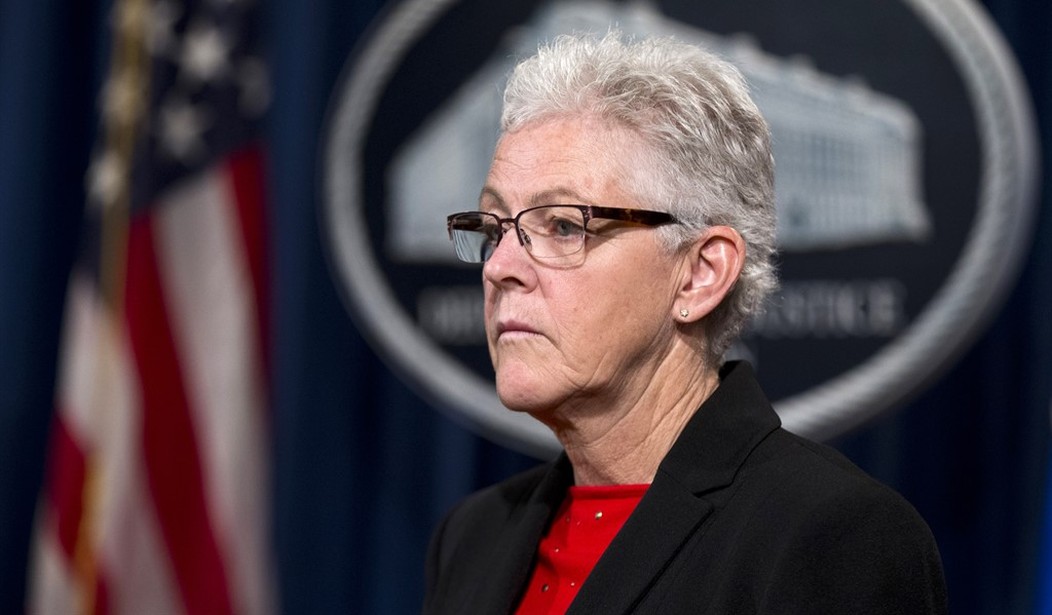The finalization of the Environmental Protection Agency’s Clean Power Plan was met with a flurry of legal challenges from state attorneys general across the country recently. Oklahoma’s own Attorney General Scott Pruitt filed a petition with the U.S. Court of Appeals for the District of Columbia Circuit to review the EPA’s final rule, which established guidelines to reduce greenhouse gas (GHG) emissions from existing fossil fuel-fired power plants.
In a statement released after the petition’s filing, Attorney General Pruitt asserts that the Clean Power Plan “threatens the reliability and affordability of power generation across the nation because it unlawfully coerces states into shuttering fossil-fuel generated electricity in order to meet the standards proposed in the rule.” Pruitt also states that “[t]he EPA has no authority under the Clean Air Act to achieve what it proposes in the 111(d) rule.” The EPA cites Section 111(d) of the Clean Air Act as the authority for its rule to regulate carbon emissions.
Oklahoma’s legal effort is one among many. In a separate petition, 24 other states joined together to ask the D.C. Circuit Court of Appeals to review the EPA’s final rule. In addition, 24 states and a group of business coalitions filed separate motions to stay the rule’s implementation last week.
The EPA’s final rule will require Oklahoma to reduce its greenhouse gas emissions by 32 percent by the year 2030. This reduction is slightly more lenient than the 36 percent original goal under the proposed rule released last year. These cuts, however, will still mean painful increases in utility costs for Oklahoma families and businesses.
In September NPR reported that several of Oklahoma’s coal-fired power plants are already being retired, converted to natural gas, or installed with air scrubbers and sulfur-reduction systems. Utilities have made these changes, in part, to comply with another onerous environmental regulation: the EPA’s Regional Haze Rule and Mercury and Air Toxics Standards. Oklahomans will ultimately pay for these changes through their monthly utility bills. President Obama’s new plan to curb carbon emissions will only make matters worse.
Recommended
Oklahomans should applaud the efforts of Attorney General Scott Pruitt, and the efforts of attorneys general around the country, to fight back against the federal government’s overreach. The ability of our state lawmakers, who are elected by the people of Oklahoma, to meaningfully draft our own energy and environmental policy is at stake. In order to successfully push back against the EPA’s power grab, however, states must not simply rest their fate in the hands of administrative or constitutional law.
Americans For Prosperity has joined a broad, national coalition of organizations in calling on states to not only challenge the legality of the Obama administration’s regulation, but to also resist submitting a State Implementation Plan (SIP) under the rule. As illustrated by the Supreme Court’s decision in Michigan v. EPA, where the EPA’s mercury rule was declared unlawful for failing to consider costs in its decision to regulate power plants, this administration’s interpretations of the Clean Air Act are not above reproach. A state implementation of the carbon emissions rule before the questions over its legal authority are settled could cost our state millions in wasted dollars.
Oklahoma has already taken an important step in pushing back against the EPA’s plan. In April, Governor Mary Fallin issued an executive order to protect our state from the needless waste of valuable resources to implement the carbon emissions regulation before the legal challenges are complete. Governor Fallin should receive much praise for her decision in this matter.
In the coming days, however, Oklahoma officials must continue to take every opportunity to protect Oklahoma ratepayers from the EPA’s arduous regulation. As our state regulators, utilities, and policymakers sift through the more than 3,000 pages contained in the Clean Power Plan to determine all that is required for compliance, the average Oklahoma family opens their monthly bills with greater hesitation, wondering when Washington’s environmental mandate will create even more difficult choices for their already constricted budget. While federal bureaucrats may live too far from the kitchen tables of Oklahoma families to understand their concerns, state policymakers should take every chance possible to ensure the availability of affordable energy for all our citizens.

























Join the conversation as a VIP Member